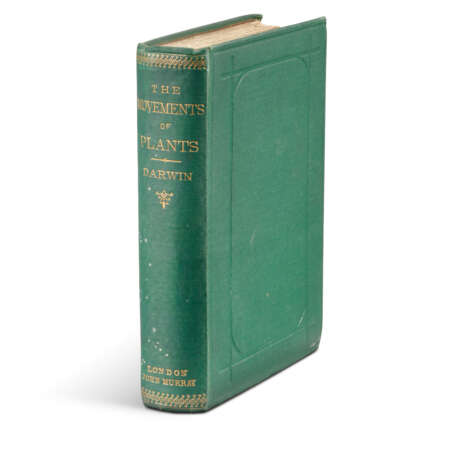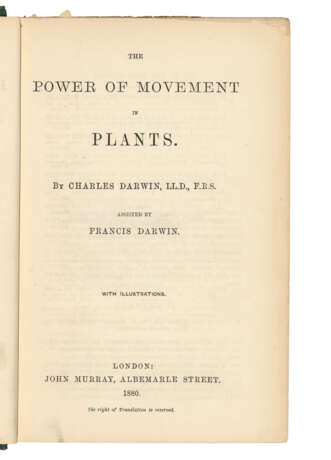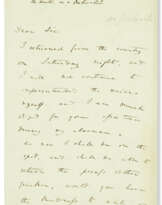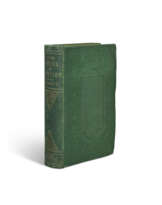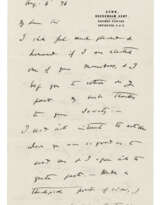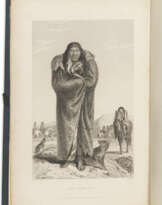ID 794525
Lot 145 | DARWIN, Charles Robert (1809-1882), assisted by Francis DARWIN (1848-1925)
Estimate value
£ 1 500 – 2 000
The Power of Movement in Plants. London: John Murray, 1880.
First edition, first issue of 1500 copies with 2-line errata, and advertisements dated May 1878. Darwin began writing this book in the summer of 1877, and is his longest botanical book at 600 pages. It extended his work on climbing plants, showing that the same mechanism operated for flowering plants in general. 'A tough piece of work,' he commented in his autobiography, '... in accordance with the principle of evolution it was impossible to account for climbing plants having been developed in so many widely different groups unless all kinds of plants possess some slight power of movement of an analogous kind. This I proved to be the case' (Autobiography, ed. F. Darwin, New York, 1958, p. 52). Freeman 1325.
Octavo187 x 123mm). Half-title, 196 woodblocks in text, 32pp. publisher’s ads dated May 1878 at end (pp.491-496 and 513-514 with tiny marginal hole at top corner due to production flaw with consequent light marginal light creasing to gathering 2K between these pages, light spotting to final leaf of ads, a few leaves slightly carelessly opened). Original green cloth, uncut (faint white spots on spine, extremities faintly rubbed, inner hinges cracking). Provenance: G. Bernard Hoffmeister (ink ownership inscription with place of ‘Caius’, Cambridge) – a couple of neat pencil notes in margins.
Special notice
No VAT on hammer price or buyer's premium.
| Artist: | Charles Robert Darwin (1809 - 1882) |
|---|---|
| Place of origin: | Northern Europe, Europe, United Kingdom |
| Auction house category: | Medicine & science, Printed books |
| Artist: | Charles Robert Darwin (1809 - 1882) |
|---|---|
| Place of origin: | Northern Europe, Europe, United Kingdom |
| Auction house category: | Medicine & science, Printed books |
| Address of auction |
CHRISTIE'S 8 King Street, St. James's SW1Y 6QT London United Kingdom | |
|---|---|---|
| Preview |
| |
| Phone | +44 (0)20 7839 9060 | |
| Buyer Premium | see on Website | |
| Conditions of purchase | Conditions of purchase |
